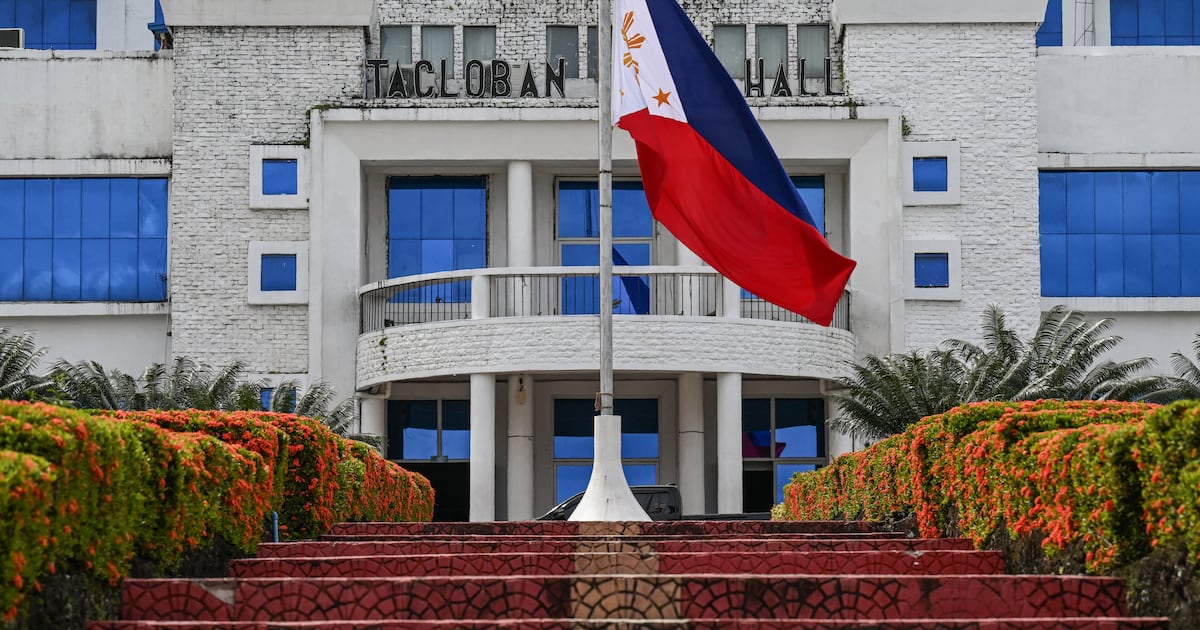
TAIPEI, Taiwan – The Philippines lifted a decades-old policy that tightly restricted official engagement with Taiwan in a move an expert says signals a recalibration of its China policy as tensions simmer.
Under the new policy, introduced on April 15, Philippine government officials – except for the President, Vice President, Foreign Affairs Secretary and Defense Secretary – can now visit Taiwan for economic, trade or investment-related activities, provided they travel on regular passports and do not use their official titles.
Previously, Philippine officials were barred from visiting Taiwan or meeting with Taiwanese officials without prior government approval.
The amendment is “to further maximize opportunities for the development and expansion of the Philippines’ priority areas of investment,” the state-run Official Gazette said in a memorandum released on Monday.
In response, Taiwan’s foreign ministry highlighted that the democratic island is the Philippines’ ninth biggest trading partner and praised the decision for “strengthening Taiwan-Philippines relations” and “advancing substantive cooperation.”
China has not commented.
J. Michael Cole, a Taipei-based senior fellow at the Global Taiwan Institute, believes Manila’s move reflects its realization that the Philippines and Taiwan, as neighbors facing similar security challenges, stand to gain from closer collaboration.
“Growing ties between Taiwan and the Philippines are indeed related to the deteriorating security environment in the South China Sea and Beijing’s belligerence towards Manila,” Cole said.
In recent years, tensions between China and the Philippines have escalated due to repeated confrontations in the South China Sea over areas claimed by China that are in the Philippines’ exclusive economic zone.
One recent case was a Google Maps update labeling waters west of the Philippines as the “West Philippine Sea” – a move that reignited debate over a long-standing territorial dispute. While the Philippines uses this name to assert its sovereignty, China continues to claim the area as part of the South China Sea.
In February, the Chinese military conducted a new combat readiness drill near a disputed area with the Philippines in the South China Sea. The exercise added to a growing series of maneuvers Beijing has carried out in the region.
The Philippines has also alleged that China’s recent detention of three Filipino citizens on espionage charges may be retaliation for Manila’s recent crackdown on suspected Chinese spies.
“Both Taiwan and the Philippines face an increasingly complex ‘grey zone’ environment and stand to benefit from exchanging notes on the matter and collaborating where collaboration is possible,” said Cole, referring to covert, ambiguous and low-level tactics aimed at achieving strategic objectives without triggering full-scale conflict.
The Philippines and Taiwan have maintained unofficial relations since 1975, when Manila formally recognized the People’s Republic of China under the One China policy.
Despite the absence of official diplomatic ties, the two sides engage through representative offices, which function as de facto embassies.
Under President Ferdinand Marcos Jr., the Philippines first signaled a subtle shift in its approach to Taiwan. In January 2024, Marcos publicly congratulated Lai Ching-te when he was elected as the island’s president, expressing a desire for closer collaboration – a move that drew criticism from Beijing.
The Philippines’ move also came as Manila seeks deepening defense ties with the United States.
According to a recent Naval News report, U.S. forces plan to deploy anti-ship missiles in the Luzon Strait – a strategic waterway between Taiwan and the northern Philippines – during this year’s annual “Balikatan” joint military exercise. China has condemned the drills as a “disruption of regional stability.”
During his first official visit to Manila in March, U.S. Defense Secretary Pete Hegseth confirmed that Washington will send advanced military equipment to the Philippines to bolster deterrence in the region, signaling a further strengthening of U.S.-Philippine security cooperation.
Edited by Taejun Kang and Stephen Wright.


